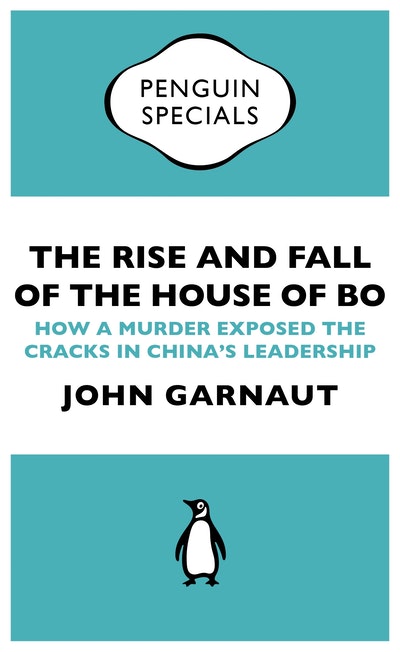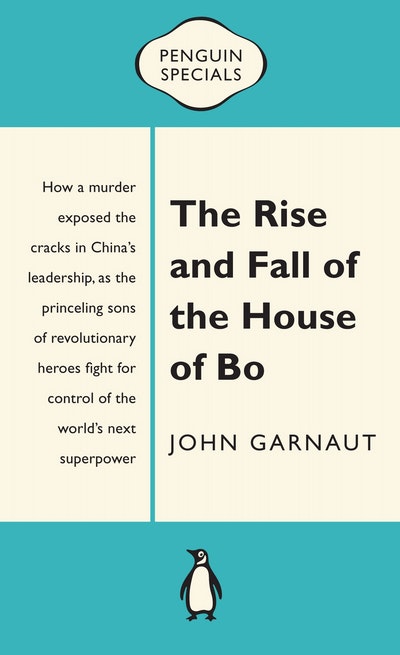When news of the murder trial of prominent Communist Party leader Bo Xilai's wife reached Western attention, it was apparent that, as with many events in the secretive upper echelons of Chinese politics, there was more to the story. Now, as the Party's 18th National Congress oversees the biggest leadership transition in decades, and installs the Bo family's long-time rival Xi Jinping as president, China's rulers are finding it increasingly difficult to keep their poisonous internal divisions behind closed doors.
Bo Xilai's breathtaking fall from grace is an extraordinary tale of excess, murder, defection, political purges and ideological clashes going back to Mao himself, as the princeling sons of the revolutionary heroes ascend to control of the Party. China watcher John Garnaut examines how Bo's stellar rise through the ranks troubled his more reformist peers, as he revived anti-'capitalist roader' sentiment, even while his family and associates enjoyed the more open economy's opportunities. Amid fears his imminent elevation to the powerful Standing Committee was leading China towards another destructive Cultural Revolution, have his opponents seized their chance to destroy Bo and what he stood for? The trigger was his wife Gu Kailai's apparently paranoid murder of an English family friend, which exposed the corruption and brutality of Bo's outwardly successful administration of the massive city of Chongqing. It also led to the one of the highest-level attempted defections in Communist China's history when Bo's right-hand man, police chief Wang Lijun, tried to escape the ruins of his sponsor's reputation.
Garnaut explains how this incredible glimpse into the very personal power struggles within the CCP exposes the myth of the unified one-party state. With China approaching super-power status, today's leadership shuffle may set the tone for international relations for decades. Here, Garnaut reveals a particularly Chinese spin on the old adage that the personal is political.


